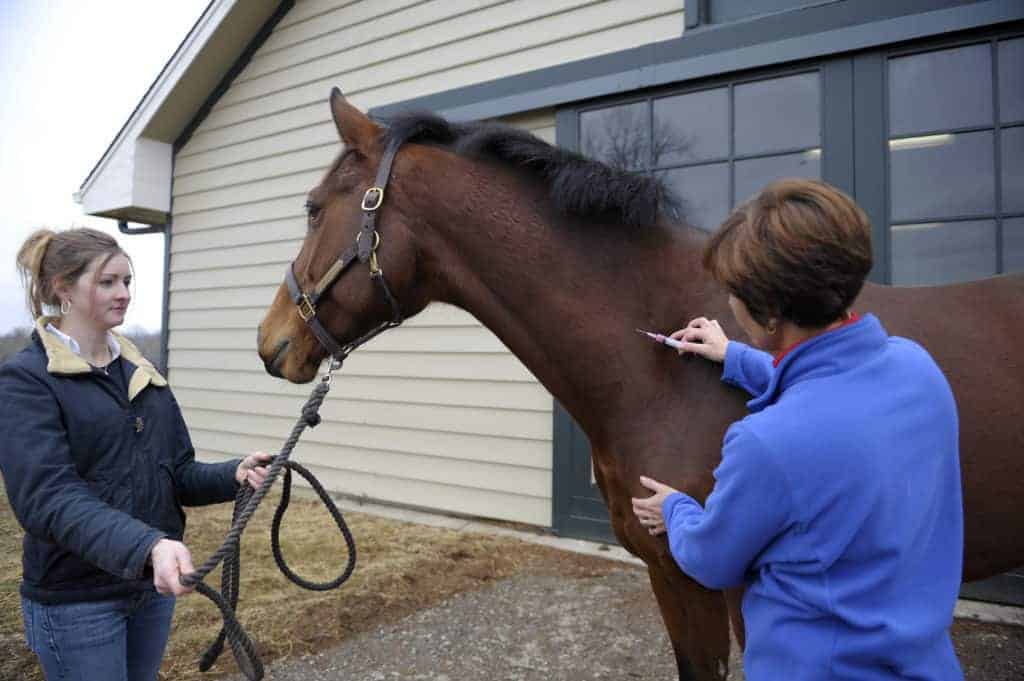
Washington EHV: At Least 16 Horses Test Positive
Sixteen horses at one King County facility have tested positive for EHV-1, seven of which have been euthanized.

Sixteen horses at one King County facility have tested positive for EHV-1, seven of which have been euthanized.

The affected 13-year-old Haflinger gelding is not exhibiting neurologic signs of disease at this time.

Vets are using serum amyloid A, a naturally produced protein, to detect equine infections and monitor treatment.

Administer booster vaccinations and target deworming treatments to help protect your horse’s health.

The Virginia Department of Agriculture and Consumer Services’ (VDACS) has confirmed a diagnosis of equine herpesvirus-1 (EHV-1) on a second farm in Virginia. Last week

Dr. Allen Page’s multifaceted role at UK will involve working as a scientist and veterinarian.

Dr. Josie Traub-Dargatz shares lessons learned from equine disease outbreaks and tactics for avoiding infection spread.
Confirmed diseases include influenza, EHV, strangles, nocardioform placentitis, piroplasmosis, EIA, and more.

The horse resided at a small private barn and, at this time, it appears that only a few horses could have been exposed.

Vaccination and biosecurity can help keep your horse healthy when you take him off the farm.
The state Department of Agriculture is working with the equine industry and veterinarians to contain the diseases.

No additional EHM cases have been identified since the removal of the positive horse on April 21.

The 15-year-old Warmblood mare was euthanized after developing severe neurologic signs.

Oladunni is studying how equine herpesvirus-1 suppresses a host’s innate immune response.

Cases of EHV-related abortions from the 2017 foal crop have been confirmed in three Kentucky counties.

Dr. David Horohov, UK Gluck Equine Research Center director, gives a overview of vaccines and explains their importance.
Stay on top of the most recent Horse Health news with
"*" indicates required fields